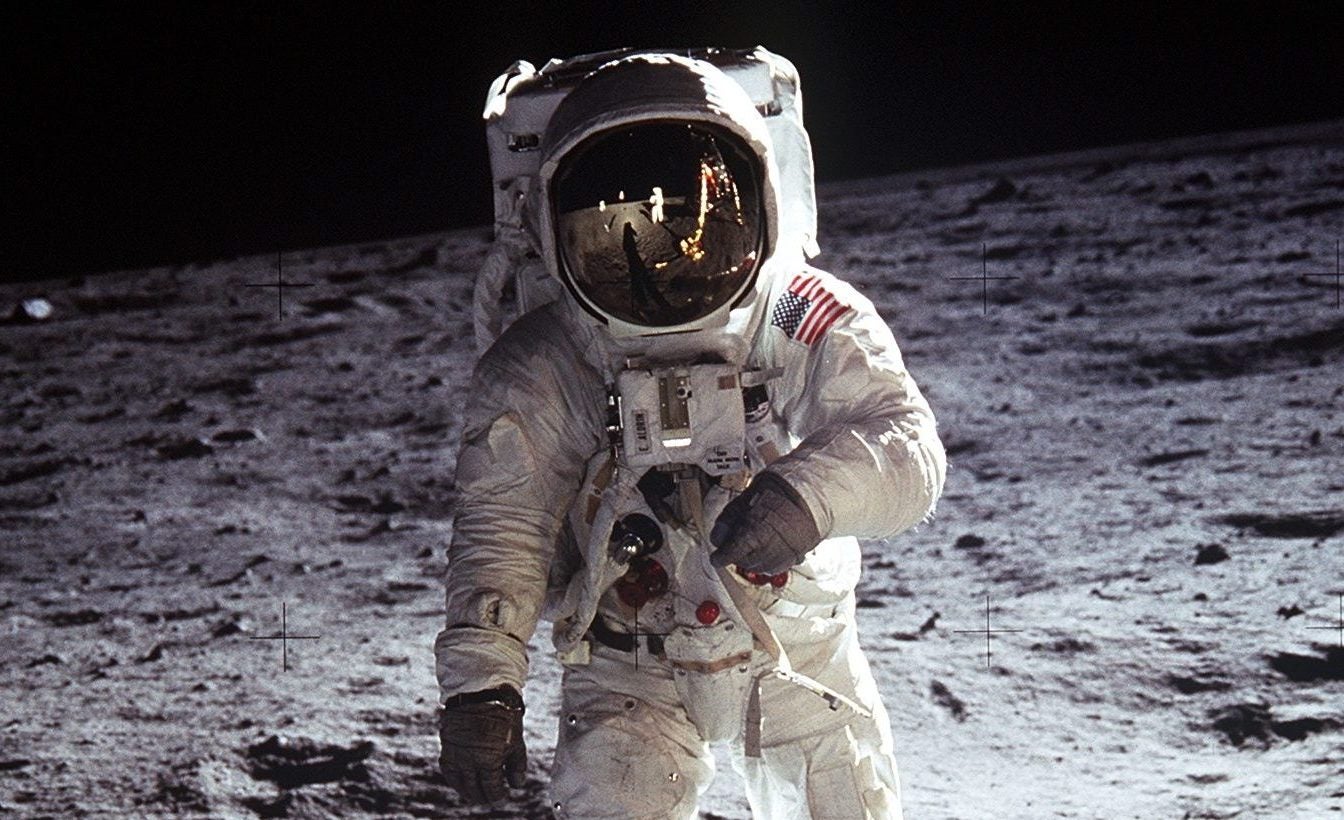The Day We Walked On The Moon review: Generic anniversary fodder of the purest kind
On the 50th anniversary of Neil Armstrong and Buzz Aldrin’s extraterrestrial peregrinations, the prospect of the moon landings still seems just as implausible

Your support helps us to tell the story
From reproductive rights to climate change to Big Tech, The Independent is on the ground when the story is developing. Whether it's investigating the financials of Elon Musk's pro-Trump PAC or producing our latest documentary, 'The A Word', which shines a light on the American women fighting for reproductive rights, we know how important it is to parse out the facts from the messaging.
At such a critical moment in US history, we need reporters on the ground. Your donation allows us to keep sending journalists to speak to both sides of the story.
The Independent is trusted by Americans across the entire political spectrum. And unlike many other quality news outlets, we choose not to lock Americans out of our reporting and analysis with paywalls. We believe quality journalism should be available to everyone, paid for by those who can afford it.
Your support makes all the difference.Some of humanity’s past achievements don’t seem like much now. I’ve got the number of a bloke who could knock out a Colossus of Rhodes in a couple of days. Climbing Mount Everest is just like surviving bank holiday IKEA. The moon landings, on the other hand, look more remarkable with every passing day. On the 50th anniversary of Neil Armstrong and Buzz Aldrin‘s extraterrestrial peregrinations, the prospect of men walking on the moon seems as implausible as it did in 1962, when JFK first promised it would happen. As we are often reminded, there was less computing power in the whole world in 1969 than there is on a single smartphone. More to the point, how did they endure a trip of that length without a single smartphone?
The Day We Walked On The Moon (ITV) is generic anniversary fodder of the purest kind, the sort of programme that presents its absence of new information as a virtue. It is narrated by Mark Strong, whose name implies a safe pair of hands. “July, 1969,” he says as the programme begins. “The moon floats in the sky, aloof and mysterious.” Aloof? Is that quite right? Never mind, “Space Oddity” is playing.
The programme’s tone is reminiscent of those countdown shows, Britain’s Favourite Boybands or The Nation’s Preeminent Dogs, where a series of talking heads guides you on a tour of the most meaningless suburbs of your brain. There are interviews with some of the people involved – notably the flight director, Gene Kranz, and Michael Collins, the third man on the mission – but all their anecdotes have the worn-smooth quality of stories that have been rehearsed every day since.
The rest of the subjects are exactly who you would expect. Here’s Professor Brian Cox, who can’t actually remember the landing but who is legally obliged to appear on every programme about space in the UK. There’s Dr Brian May, who watched it with Roger Taylor down in Cornwall. Next comes Sir Trevor McDonald, committed utterly to stating the obvious.
Although it’s billed as a documentary, this is TV as memory lane, the same as sitting in a pub and listening to a misty-eyed old man say: “Remember the moon landings?” Seen at half a century’s distance, there are more interesting contexts to the landings, in particular the background of social unrest about civil rights and the war in Vietnam, but they are only hinted at.
The contrast between America then and now, seen through the prism of space exploration, would also make an interesting documentary of its own, but it might contain scenes of mild horror. At one point, we see the footage of Nixon phoning the astronauts to congratulate them. It seems distasteful, given what we now know about the man.
A moment later, the journalist Adam Raphael pops up, to say what we are all thinking: “Can you imagine what Trump would be doing on that sort of thing?” It’s the best argument against space travel I’ve heard.
Join our commenting forum
Join thought-provoking conversations, follow other Independent readers and see their replies
Comments